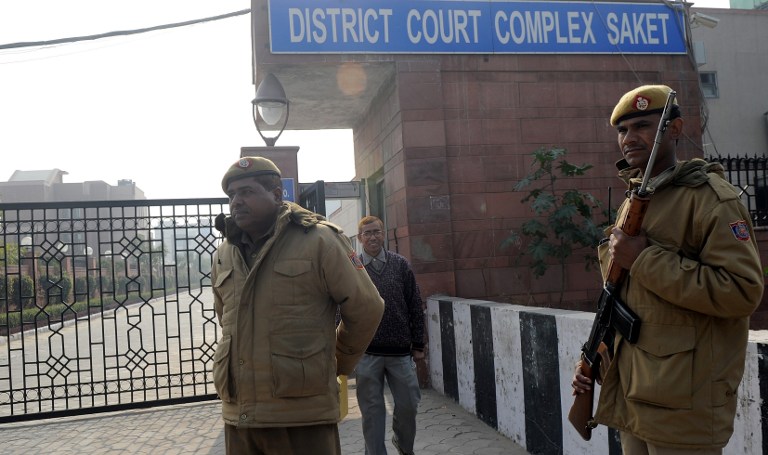SUMMARY
This is AI generated summarization, which may have errors. For context, always refer to the full article.

NEW DELHI, India – The juvenile court trial of one suspect in a fatal gang rape has caused a heated debate over the legal age of adulthood in the eyes of Indian law.
In the weeks following the crime, thousands chanted “Hang the Rapists” on streets across the country. But the first verdict, due Thursday, July 11, carries a maximum sentence of just three years in a correctional facility.
The suspect’s punishment is capped by the 2000 Juvenile Justice Act, which prescribes trial as a minor – and more lenient sentencing – for anyone under 18 at the time of the alleged crime.
The accused’s defense team have produced school documents showing he was 17 years and six months old on December 16, when a 23-year-old physiotherapy student and her male friend were beaten and she was gang raped before being thrown onto the road.
The woman died from her injuries two weeks later.
Her family and others have called for the suspect, now 18, to be tried as an adult alongside the other defendants, who could face the death penalty.
The four other men have been on trial for rape, murder and other charges in a special court since February. A fifth, the alleged bus driver, was found dead in prison in March, after apparently committing suicide.
“His crime is as reprehensible as the other accused,” the victim’s younger brother said of the youngest defendant. “He should be hanged until death.
“He committed a heinous crime and was said to be the most brutal attacker,” he said. “If he is let off so easily, it will only encourage more such crimes. They should make an example out of him.”
Neither the victim, her relatives nor the juvenile accused can be named under Indian law.
Some feel the law is too soft on young offenders generally.
College student Aarti Sharma, who participated in the protests, is one of a growing number demanding that the age for trial as an adult be lowered back to 16, where it was before the change was implemented in 2001, as well as tougher punishments for those tried as juveniles.
“In today’s age, children mature much faster,” she said. “Is it fair that [the juvenile suspect] escapes due punishment just because he was six months younger?”
The Supreme Court is examining the juvenile laws, as public pressure mounts amid a rising number of violent crimes by older teenagers.
One lawyer has filed a challenge to the immunity of suspects younger than 18 from prosecution as an adult.
“The Juvenile Justice Act equates a 17-year, 11-month offender with a 7-year-old or even younger,” said Sukumar, who uses only one name. Crimes by younger children should not be treated on a par with those committed by people in their late teens, he said.
“Besides, the nearer a juvenile is to maturity, the lesser is his detention period,” he said. “The JJ Act is an open invitation for the juvenile to commit crime and go unpunished.”
Indian media have pointed to Western countries like the United States and Britain, where courts can decide whether to try legal minors as adults in particular cases.
The majority of juvenile crimes in India is committed by those at the upper end of the age range, Sukumar pointed out.
A total of 25,000 offenses, including 1,168 murders and 1,231 rapes were committed by juveniles in 2011, according to the National Crime Records Bureau.
Almost 64 per cent were committed by those between 16-18 years of age, up from 50 per cent in 2001, Sukumar said.
But social activist Kavita Srivastava says juvenile delinquents deserve a chance of rehabilitation, and that the public should not be swayed by an emotional reaction.
“The core of our justice system is corrective and reformatory,” she said. “How can we lose an objective perspective because of one case? You cannot criminalize and brutalize children through your own courts.”
She said the defendant, who led a troubled, impoverished life, deserved a helping hand.
“Assessments can be done periodically on him and if these still show criminal tendencies, his stay at the reformatory can be extended.”
A lawyer for two of the defendants said neither a normal adult trial nor release would be in the teenager’s best interest.
One of his own clients was tortured and beaten by both inmates and authorities in jail, , AP Singh said.
“It is better he remains in a special home or under protective custody,” he said of the juvenile defendant. “People will not leave him be. They will kill him if he is set free.” – Rappler.com
Add a comment
How does this make you feel?
There are no comments yet. Add your comment to start the conversation.